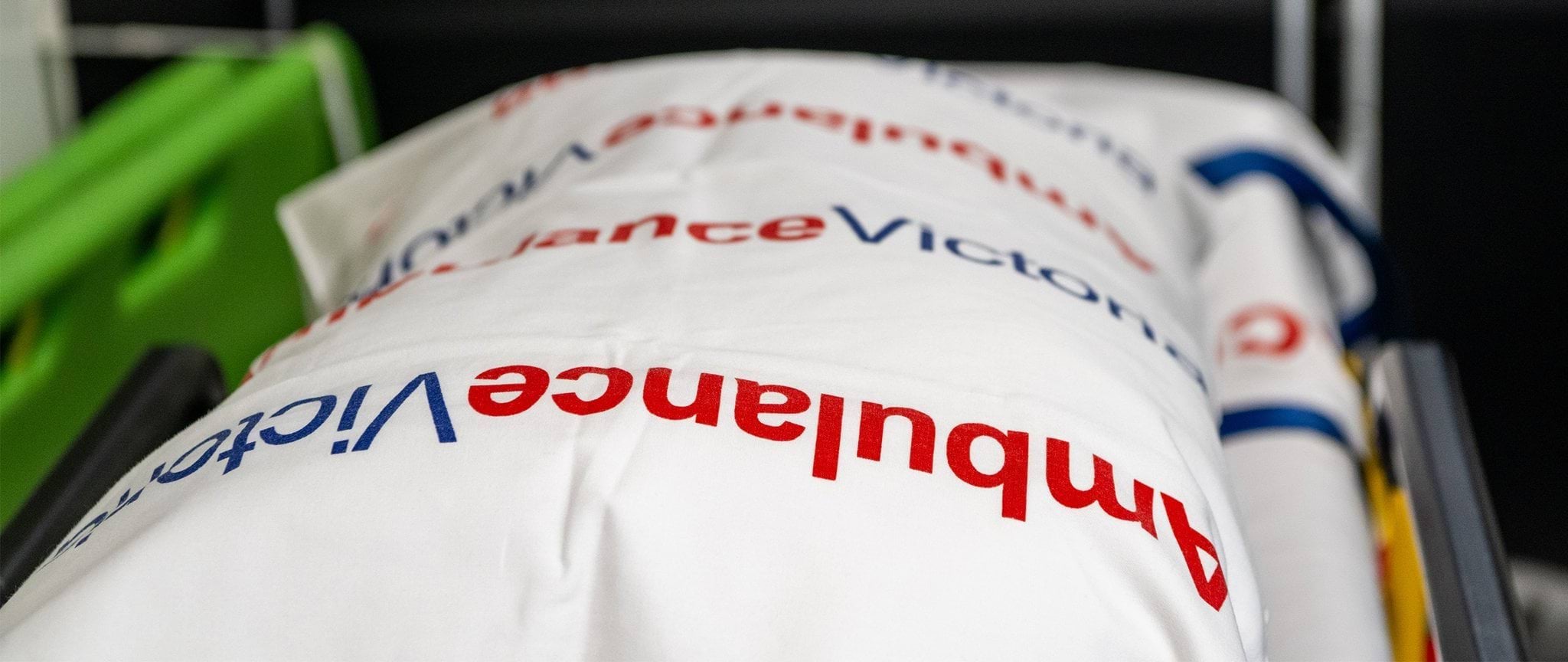About Victorian Stroke Telemedicine
The Victorian Stroke Telemedicine (VST) service helps doctors work together across different hospitals to give the best care to stroke patients, no matter where they are. It connects 19 hospitals in Victoria and three in Tasmania with stroke specialists who can give advice on treating stroke symptoms. This service uses video calls and real-time brain scans to help doctors and patients talk to specialists remotely.
The goals of VST are to:
- Improve hospital abilities.
- Reduce delays in diagnosing strokes.
- Increase access to stroke treatments like clot-busting medications and clot removal procedures, which lead to better patient outcomes.
Stroke is the second leading cause of death and the main cause of adult disability in Australia. It has severe effects, with about 40 per cent of people dying within a year and 50 per cent needing help with daily activities. Quick treatment is crucial because every minute counts. Research shows that using a clot-busting medication within 4 and a half hours of symptoms can greatly improve recovery chances.
VST works closely with the Australian Stroke Clinical Registry (AuSCR), a national database that tracks and improves stroke care quality.
VST is available 24 hours a day, 7 days a week, 365 days a year.
History
The VST service started as a pilot program from 2010 to 2013 with Bendigo Health. It expanded to 15 more hospitals between 2013 and 2017. During this time, it was managed by The Florey Institute of Neuroscience and Mental Health. On 1 January 1 2018, VST officially became part of Ambulance Victoria.
Benefits of VST
Many rural hospitals don’t have stroke specialists or 24/7 access to stroke care. Telemedicine allows VST to help local hospital staff assess and manage stroke patients through a phone call. This means patients can get treated locally, reducing the need to travel to another hospital.
- 24 hours a day, seven days a week access to stroke specialists.
- Supports decision-making in hospitals.
- Reduces delays in diagnosis and treatment.
- Improves outcomes for stroke survivors.
- Faster treatment leads to better recovery.
- Reduces inequality in access to treatments.
- Local treatment reduces the need for travel.
Participating hospitals
- Albury.
- Bairnsdale.
- Ballarat.
- Bendigo.
- Burnie (Tasmania).
- Echuca.
- Hamilton.
- Horsham.
- Launceston (Tasmania).
- Mersey (Tasmania).
- Mildura.
- Portland.
- Sale.
- Shepparton.
- Swan Hill.
- Traralgon.
- Wangaratta.
- Warragul.
- Warrnambool.
- Werribee.
- Wodonga.
- Wonthaggi.
VST Stroke Scholarship Program
The Victorian Stroke Telemedicine (VST) Stroke Scholarship Program started in 2019 to help nurses and allied health professionals who work with stroke patients.
The program aims to improve stroke care in regional areas by offering educational opportunities to clinical staff.
Each year, two scholarships are given to nurses and allied health professionals working in stroke care at VST sites.
In 2024, there were many applicants, making the selection process very competitive. VST is excited to follow the careers of not only the two winners but also all the applicants. The high quality of applications shows the talent and dedication of the participants, and we look forward to seeing their future contributions to stroke care.
Scholarships available
Two scholarships are awarded each year to support nurses and allied health professionals working in acute/sub-acute stroke care at VST sites.
For 2025 the successful applicants will have the choice to attend one of two conferences:
- Smart Strokes 2025: 15 – 17 October 2025 (Newcastle, NSW)
- Australia & New Zealand Stroke Organisation Conference (ANZSOC): 2 – 5 September 2025 (Hobart)
Scholarship eligibility
To apply for a scholarship, you must be a nursing or allied health clinician working in acute/sub-acute stroke care at a VST participating site.
A minimum of six months continuous service in your current role is required.
How to apply
Applications are open. Apply now.
Applications close 5:00 pm Friday 23 May 2025.
Make sure you follow all the instructions outline in the application process (found in the link above) as incomplete applications will not be accepted.
Successful applicants will be notified no later than Tuesday 10 June 2025.
In memory of Bob Sheldrick
The scholarship program honours Bob Sheldrick, who passed away from a stroke in 2017. Bob valued education and was passionate about his rural community and fairness for all. The program is funded by donations from Bob’s family, friends, and the Barham/Koondrook community. VST thanks the Sheldrick family for honouring Bob’s legacy through this program.
Contact VST
To access VST clinical services call the 1300 number on your TELEDOC.
We encourage our VST participating sites to contact us for all cases of suspected acute stroke where symptom onset is less than 24 hours. Please call the 1300 number displayed on your TELEDOC to speak to VST and be connected to a stroke consultant. If you are unable to locate the 1300 number, or if you do not need clinical services but need to speak with us, please call the VST office on +61 3 8877 2903 (Monday to Friday, 8:00am – 4:00pm AEST).
For all other queries please email VST.Support@ambulance.vic.gov.au.
Updated
